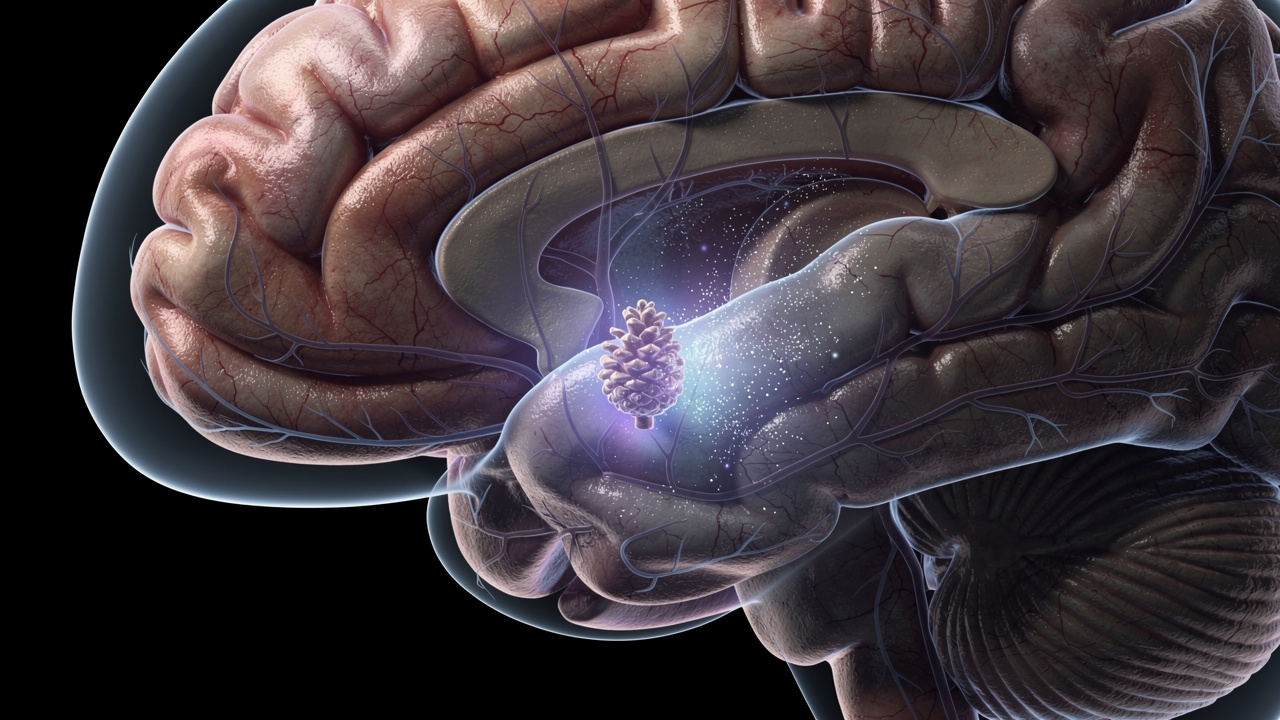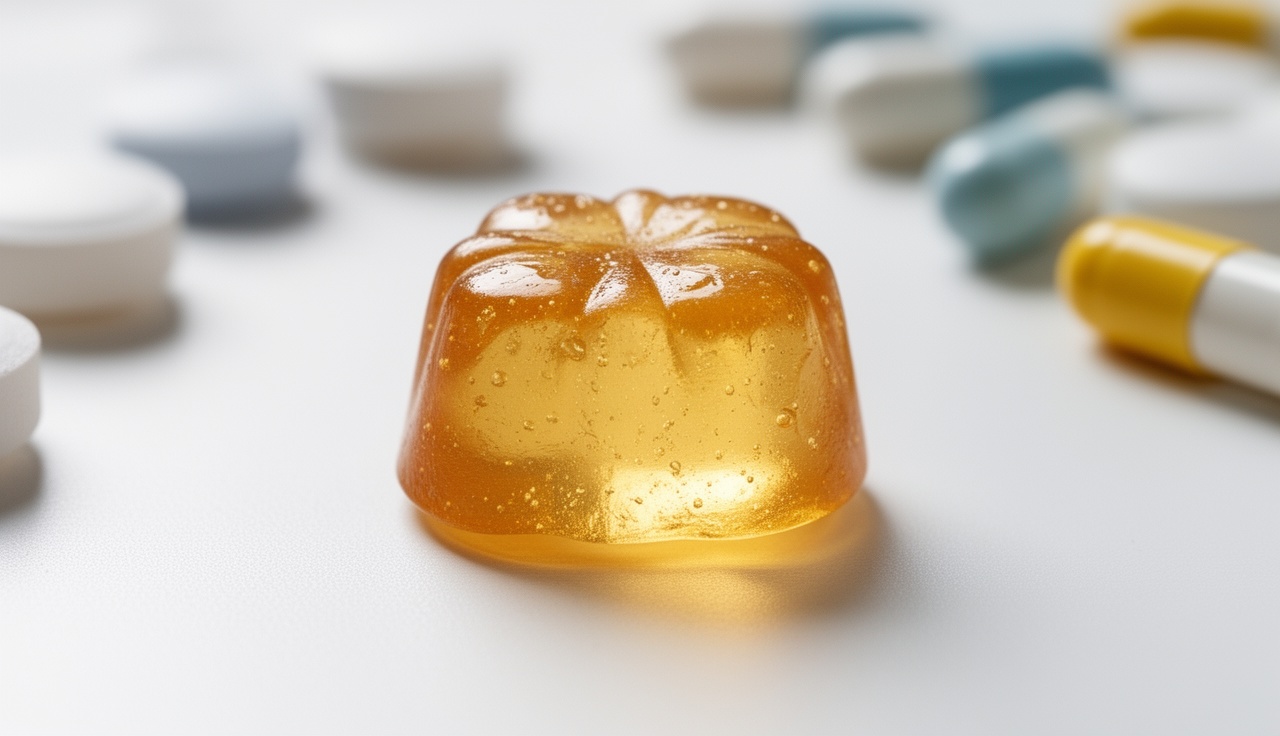If you care about sleep quality, recovery, and long-term health, melatonin can look like an easy win. But as people chase deeper sleep and better performance, doses keep creeping up—often to 10 mg, 15 mg, or even 20 mg.
That leads to a common search question: “melatonin dosage is 20mg safe, or am I overdoing it?”
For most healthy adults, current evidence says 20 mg is higher than needed and carries a higher risk of side effects without reliably improving sleep. This guide breaks down how melatonin works, standard dosing ranges, what happens at 20 mg, how product quality complicates things, and how to use melatonin as a precise tool in a performance- and longevity-focused routine.
As many sleep clinicians explain to patients, “Think of melatonin as a signal that it’s nighttime, not a knockout pill.”
How Melatonin Works In Your Body

Melatonin: Facts, Extrapolations and Clinical Applications confirm that melatonin is a hormone produced by the pineal gland in the brain. Its main job is to coordinate your circadian rhythm—your internal 24‑hour clock that regulates:
-
Sleep–wake cycles
-
Hormone secretion
-
Core body temperature
-
Immune and metabolic functions
Light is the primary control switch. Bright light at night suppresses melatonin, while darkness allows levels to rise. When melatonin climbs in the evening, it doesn’t knock you out like a sedative. Instead, it creates a state often described as quiet wakefulness that makes it easier to drift into sleep.
For high performers and longevity enthusiasts, that circadian alignment matters. Chronic circadian disruption has been linked to:
-
Impaired recovery and muscle repair
-
Lower cognitive performance
-
Changes in metabolic health and body weight
-
Immune dysregulation
When this rhythm is off—because of late-night screens, shift work, jet lag, or erratic schedules—many people turn to melatonin supplements to nudge the system back on track.
Standard Melatonin Dosages By Age And Goal

There is no official FDA-approved dosing guideline for melatonin in the U.S. It’s sold as a dietary supplement, not a prescription drug. Still, research and clinical practice have converged on some practical ranges.
The guiding rule: start low and only increase as needed. More is not automatically better.
Typical Adult Dosages
-
Starting dose: 0.5–1 mg, taken 1–2 hours before your target bedtime
-
Common effective range: 1–5 mg nightly
-
Upper end used in practice: up to 10 mg in select cases, usually under medical supervision
Many adults fall asleep just as well on 1–3 mg as they do on higher doses.
Dosage Guidelines By Age (General Ranges)
These are common ranges used in practice, not personalized prescriptions:
-
Children 6–12 years: 1–3 mg
-
Teens: 1–5 mg
-
Adults: 1–5 mg
-
Older adults (65+): 0.5–3 mg, because metabolism is slower and sensitivity is higher
In children—especially under age 5—melatonin should only be used after discussion with a pediatrician and only after sleep hygiene and behavioral strategies have been addressed.
Dosage By Use Case
-
Short-term insomnia: 1–5 mg, about 1–2 hours before bed
-
Chronic insomnia (under physician care): up to 10 mg, 30–60 minutes before bed
-
Jet lag:
-
0.5–2 mg before or on the day of travel
-
Up to 5 mg at local bedtime for a few nights after arrival
-
-
Shift work / delayed sleep phase: lower doses (0.5–3 mg) taken several hours before the desired bedtime to shift the circadian phase
Against this backdrop, you can see where a key question arises: melatonin dosage is 20mg safe, or is it far above what most people need?
Melatonin Dosage: Is 20 mg Safe Or Too Much?
For healthy adults, a 20 mg melatonin dose is generally considered too high for routine use. It’s about double the upper limit (10 mg) typically used even in tougher insomnia cases.
Key points from current evidence and expert opinions:
-
Studies show no consistent additional benefit to sleep onset or quality when jumping from moderate doses (1–5 mg) to very high doses (10–20 mg).
-
Safety of higher doses of melatonin research, including systematic reviews and meta-analyses, finds higher rates of headaches, dizziness, and daytime drowsiness with doses greater than 10 mg.
-
High doses can distort your circadian rhythm, leaving you groggy, disoriented, or wide awake at odd hours.
There are special clinical or research scenarios where doses near 20 mg might be used (for example, in certain neurological or oncology protocols), but these are:
-
Short-term
-
Closely monitored
-
Individually prescribed
For the general public—even high-performing athletes, executives, and biohackers—there is no solid evidence that a 20 mg melatonin dosage improves outcomes enough to justify the increased risk of side effects.
If you’re asking whether melatonin dosage is 20mg safe as a nightly habit, the science-backed answer is: not recommended without direct medical supervision.
Side Effects And Risks At High Doses (Including 20 mg)

Melatonin is often described as “safe,” but that’s in the context of low to moderate doses. At higher doses—such as 20 mg—the risk, intensity, and variety of side effects go up.
Common Side Effects (Even At Lower Doses)
-
Drowsiness and daytime fatigue
-
Headaches
-
Dizziness or lightheadedness
-
Nausea
-
Vivid dreams or nightmares
Side Effects More Likely At 20 mg Or Higher
Neurological And Cognitive
-
Severe next‑day sleepiness
-
Confusion or feeling “out of it”
-
Disorientation or feeling faint
-
Irritability or anxiety
-
Tremors in rare cases
Psychological
-
Worsening of depression symptoms in susceptible individuals
-
Intensified or frightening nightmares
Cardiovascular
-
Low blood pressure (hypotension)
-
Rapid heart rate (tachycardia) in some reports
Gastrointestinal
-
Abdominal cramps
-
Diarrhea
-
Vomiting
-
Gastritis (stomach inflammation)
Hormonal And Reproductive
-
Disruption of menstrual cycles
-
Possible interference with reproductive hormones
-
Some research suggests reduced semen quality with long-term, high-dose use
Other Effects
-
Changes in body temperature (hypothermia)
-
Visual disturbances
-
Skin rash
-
Bedwetting or urinary incontinence, especially in children
Chronic Administration of Melatonin: Physiological and Clinical Considerations research shows that long-term safety data at 20 mg and above are limited. For anyone thinking about melatonin as a routine part of a longevity or performance protocol, that uncertainty alone should carry weight.
Why “20 mg” On The Label Might Not Be 20 mg
Even if you decide 20 mg is right for you (or you’ve been advised to try it), another problem appears: supplement quality and labeling accuracy.
Because melatonin in the U.S. is classified as a dietary supplement, it:
-
Is not tested by the FDA for safety and effectiveness the way drugs are
-
Does not have a standardized, enforced dosage requirement
Research on commercial melatonin products has found:
-
Actual melatonin content ranging from 83% less to 478% more than the amount listed on the label
-
Lot‑to‑lot variability of up to 465% from the same manufacturer
-
In some gummies, melatonin content ranging from 74% to 347% of the stated dose
That means your “20 mg” capsule could realistically be closer to 5 mg—or 30+ mg.
Contaminants And Add-Ons
Studies have also detected:
-
Serotonin, a controlled substance, in some melatonin supplements
-
Cannabidiol (CBD) in others, without clear labeling
For parents, there is an additional concern: many melatonin products look and taste like candy. Poison control center data show a sharp rise in accidental ingestions in children, sometimes requiring hospitalization.
All of this makes a self-experiment with melatonin dosage is 20mg safe even more unpredictable. You don’t truly know the amount you are taking unless the product is rigorously third‑party tested.
Drug Interactions And Who Should Avoid High-Dose Melatonin
Melatonin does not exist in a vacuum. It interacts with medications, health conditions, and other supplements in ways that become more concerning at 20 mg.
Key Medication Interactions
Always discuss melatonin with your clinician if you take:
-
Blood thinners (anticoagulants and antiplatelets)
-
Example: warfarin (Coumadin)
-
Melatonin can increase bleeding risk by amplifying anticoagulant effects.
-
-
Sedatives and sleep medications
-
Benzodiazepines (e.g., diazepam)
-
Z‑hypnotics (e.g., zolpidem/Ambien)
-
First‑generation antihistamines (e.g., diphenhydramine/Benadryl)
-
Combined with melatonin, these can cause extreme sedation and impaired alertness.
-
-
Blood pressure medications
-
Melatonin may alter blood pressure control, sometimes making it worse.
-
-
Diabetes medications
-
Melatonin can affect blood glucose regulation, requiring close monitoring.
-
-
Anticonvulsants (for epilepsy or seizure disorders)
-
Melatonin may reduce the effectiveness of some anti‑seizure drugs or lower the seizure threshold.
-
-
Hormonal contraceptives
-
Oral contraceptives can increase endogenous melatonin levels; adding high-dose melatonin on top can promote side effects like intense drowsiness.
-
-
Common NSAIDs (e.g., ibuprofen/Advil)
-
NSAIDs may reduce natural melatonin production, which can change how supplemental melatonin feels and works.
-
Populations That Should Use Extra Caution (Or Avoid High Doses)
-
Pregnant or breastfeeding women – Safety data are limited; most guidelines advise against routine use.
-
People with autoimmune diseases (e.g., lupus, rheumatoid arthritis) – Melatonin can stimulate immune activity and may aggravate symptoms.
-
Individuals with seizure disorders – High doses can be destabilizing.
-
People with depression or certain mood disorders – Melatonin can sometimes worsen depressive symptoms.
-
People with diabetes or significant blood sugar issues – Melatonin may shift glucose control.
-
Individuals with high blood pressure on medication – Effects on blood pressure regulation can be unpredictable.
For these groups, experimenting with melatonin dosage is 20mg safe is especially risky and should only ever happen, if at all, under direct medical guidance.
Forms Of Melatonin: Capsules, Gummies, And Nasal Sprays

For performance-minded users, the form of melatonin matters—not just the dose.
Common Delivery Forms
-
-
Designed for faster absorption through the nasal mucosa.
-
Can bring a quicker onset of effect—something frequent flyers, shift workers, or biohackers often want.
-
The flip side: side effects such as dizziness or nausea may also appear faster if the dose is too high.
-
-
Sleep capsules / tablets
-
Easy to dose; available as immediate‑release or extended‑release.
-
Extended‑release can help with staying asleep rather than just falling asleep.
-
-
Gummies and liquids
-
Palatable and convenient but often the most variable in actual content.
-
Easy to overtreat, especially in children, because they resemble candy.
-
What Research Suggests About Sprays Vs. Capsules
Regulatory agencies and sleep societies have reviewed studies comparing products like melatonin nasal spray with traditional sleep capsules. General themes:
-
Lower doses often perform as well as higher doses for sleep onset.
-
Escalating doses toward 20 mg does not reliably improve results, but it does increase complaints of headaches, dizziness, and residual grogginess.
Where Glutathione Nasal Spray Fits In
Some users interested in detoxification, oxidative stress, or recovery also look at glutathione nasal spray. It is a different molecule entirely:
-
Melatonin: primarily a circadian and sleep regulator with some antioxidant properties.
-
Glutathione: a core intracellular antioxidant involved in redox balance and detoxification.
These products can, in theory, be used together, but stacking them—especially alongside a high melatonin dose—raises the importance of having a clinician review your full protocol.
How To Use Melatonin Safely For Sleep, Recovery, And Performance

If your goal is better sleep architecture, faster recovery, sharper focus, and long-term healthspan, melatonin should be a precision tool, not a blunt-force 20 mg hammer.
1. Start Low, Increase Slowly (If At All)
-
Begin around 0.5–1 mg.
-
Increase by 1 mg at a time, giving each change at least several nights before adjusting.
-
If you’re already on high doses, discuss with your clinician how to taper down rather than just stopping abruptly.
2. Time It Correctly
Timing changes the effect:
-
For sleep onset:
-
Take melatonin 1–2 hours before your planned bedtime.
-
-
For phase shifting (e.g., delayed sleep phase, jet lag):
-
Low doses taken 3–4 hours before desired bedtime can help shift the circadian clock earlier.
-
-
For in‑flight sleep:
-
A small dose 30–45 minutes before you want to sleep can help on long flights.
-
Consistent timing, night after night, matters more than sheer dose.
3. Limit Duration Of Use
-
For short-term insomnia: often up to 4 weeks.
-
For jet lag: usually no more than 5 days.
-
For longer-term insomnia or circadian disorders: continue only under medical supervision, with attention to underlying causes (sleep apnea, stress, pain, etc.).
Melatonin is best treated as an aid, not a permanent fix.
4. Upgrade Sleep Hygiene Before You Upgrade Dose
You will get more from a 1–3 mg dose in a sleep-friendly environment than from 20 mg in a chaotic one. Core habits include:
-
A consistent sleep and wake time, even on weekends
-
Minimal blue light exposure in the 2 hours before bed
-
A dark, cool, quiet bedroom
-
Limiting late caffeine and alcohol
-
A wind-down routine: reading, stretching, breathing drills, or meditation
Pairing melatonin with these habits is far more effective than simply asking, “melatonin dosage is 20mg safe enough to fix my sleep?”
As many insomnia programs teach, “No supplement is strong enough to override poor sleep habits for long.”
Smarter Alternatives To Pushing Your Dose To 20 mg
If you are creeping up toward 20 mg because lower doses don’t “work,” it’s a sign to rethink the strategy, not just the number on the bottle.
Behavioral And Lifestyle Approaches
-
Cognitive Behavioral Therapy For Insomnia (CBT‑I)
-
Gold-standard, evidence-based therapy.
-
Includes sleep restriction, stimulus control (bed only for sleep and sex), and restructuring unhelpful sleep beliefs.
-
-
Consistent circadian cues
-
Bright light exposure soon after waking.
-
Dim lights and screen filters in the evening.
-
-
Stress management
-
Breathwork, progressive muscle relaxation, or mindfulness before bed.
-
Nutritional And Supplemental Support
-
Tryptophan‑rich foods – turkey, eggs, nuts, and seeds support serotonin and melatonin synthesis.
-
Magnesium – may help with relaxation and muscle tension.
-
Glutathione nasal spray – considered by some for oxidative stress and cellular support, separate from melatonin’s circadian role.
When To Reassess
If you feel tempted to test whether melatonin dosage is 20mg safe for your particular case, it’s time to:
-
Screen for sleep apnea, restless legs, circadian rhythm disorders, depression, or medication effects.
-
Revisit your entire day–night schedule, training timing, caffeine use, and screen exposure.
-
Talk with a clinician who understands both performance goals and medical safety.
FAQs About High-Dose Melatonin (Including 20 mg)
Is 20 mg Of Melatonin Ever Appropriate?
In rare, very specific clinical or research settings, doses near 20 mg may be used under direct medical supervision. For self-directed sleep support in otherwise healthy adults, experts consistently advise staying well below this level.
Does A Nasal Spray Make A 20 mg Dose Safer?
No. A melatonin nasal spray can change how fast melatonin is absorbed, not how much ends up in your system. A very high dose delivered quickly may actually increase the intensity of side effects such as dizziness, nausea, or next‑day fog.
Whether you use sleep capsules, gummies, or a melatonin nasal spray, the same principle holds: lower, carefully titrated doses are usually better.
What Should I Do If I Accidentally Took 20 mg Or More?
-
Do not take any additional sedatives, sleep aids, or alcohol.
-
Avoid driving or operating machinery.
-
Expect possible drowsiness, headache, dizziness, or nausea.
-
If you experience chest pain, severe confusion, fainting, or very rapid heart rate, seek emergency care.
-
For children or medically complex adults, contact poison control or your physician immediately.
Can I Build Tolerance Or Dependence?
Melatonin is not considered addictive in the classic sense. However:
-
You can develop a psychological reliance if you feel you “can’t sleep” without it.
-
Overuse at high doses may blunt your ability to sense natural sleep signals.
This is another reason to keep doses conservative and periodically reassess whether you still need it.
Key Takeaways: Where Does 20 mg Fit In?
-
For most people, 1–5 mg is sufficient, and up to 10 mg is generally treated as the upper practical limit under medical supervision.
-
A routine melatonin dosage of 20 mg is not considered safe or necessary for typical sleep issues in otherwise healthy adults.
-
High doses raise the risk of neurological, hormonal, cardiovascular, and gastrointestinal side effects without consistently improving sleep.
-
Supplement quality and labeling inaccuracy mean your “20 mg” might be far higher than you think.
-
Formulations like sleep capsules and melatonin nasal spray can be useful tools, but dose and timing matter more than delivery method.
-
Before pushing the dose, dial in sleep hygiene, light exposure, stress management, and behavioral strategies like CBT‑I.
-
Always discuss melatonin—especially at higher doses—with a qualified healthcare professional, particularly if you have medical conditions, take medications, or use other supplements such as glutathione nasal spray.
Used thoughtfully, melatonin can support sleep, recovery, and long-term health. Pushing to 20 mg without clear medical guidance, however, is a high-risk, low-reward experiment.




Leave a comment
All comments are moderated before being published.
This site is protected by hCaptcha and the hCaptcha Privacy Policy and Terms of Service apply.